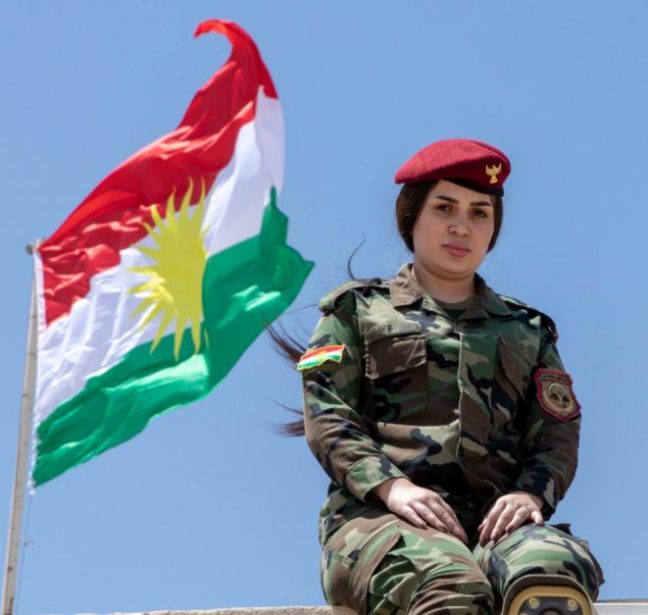By Rachel Avraham
The American people just commemorated Dr. Martin Luther King Day in honor of one of the greatest and most important figures of the civil rights movement, the man who declared “I have a dream” when the Jim Crow South wanted to slaughter those dreams just because of his skin color. One of the Dr. King quotes I love the best is: “Freedom is never voluntarily given by the oppressor; it must be demanded by the oppressed.” I believe this quote has great resonance for the Kurdish people.
Earlier this week, two Kurdish owned banks in Baghdad were hit with explosives, injuring two people. In Germany, a Syrian militant who tortured Kurds is seeking asylum, thus posing a threat to all Kurds who live there. The Iranian government represses Kurds that seek to study their own language in schools. Syrian jihadists systematically abduct Kurds and uproot their olive trees in the Afrin region. The Kurds face many obstacles in their struggle for freedom.
In honor of Dr. Martin Luther King Jr. Day, Ano Abdoka, the KRG’s Minister of Transportation, wrote in Rudaw: “Even though we face the difficulties of today and tomorrow, the difficulties that are facing our beloved Kurdistan, I still have a dream. It is a dream deeply rooted in the humanity and American dream – a dream of freedom, equality, and self-determination, a dream deeply rooted in my countrymen hearts and minds, a dream deeply rooted in the memory of tens of thousands of our martyrs, a dream deeply rooted in my people conciseness.”
According to Abdoka, “I have a dream that one day our nation, the Kurdistan nation, will rise up and live out the true meaning of its creed: ‘We hold these truths to be self-evident, that all men are created equal.’ I have a dream that one day on the land of old Mesopotamia, Babylon and Assyria, the sons of former oppressors and the sons of former oppressed people will be able to sit down together, as equals, at the table of brotherhood.”
“I have a dream that one day even the state of Iraq, a state sweltering with the heat of injustice for decades, sweltering with the heat of oppression for one hundred years, will be transformed into an oasis of freedom and justice for all,” Abdoka proclaimed. “I have a dream that my little children will one day live in a state where they will not be judged by their religion or ethnicity, but by the content of their character.”
Dr. Mahmoud Abbas, a Kurdish writer and political analyst who serves as the General Consul of the Kurdistan National Council of Syria, implied in an interview that Dr. King’s vision can easily be applied to the Kurdish people: “We are a people who were not united by a political entity, nor a Kurdish system, nor a common constitution, nor legislative laws on which to build our future.”
According to Abbas, “We were divided by totalitarian, dictatorial regimes, yet we continued as a cohesive nation in its structure, and the subconscious belonging to the absent homeland remained present, and on its foundations the Kurdish identity was not affected. Which directs us as a people before the cultural-political movement towards agreeing on a general project whose ultimate goal is liberation, despite the regimes’ fight against it, and its internal distortion of various partisan-political backgrounds.”
In conclusion, Abbas declared: “One of the goals of the Kurdish national project is to correct the distorted history in the region, and to convince the people that the freedom of the Kurdish people is an actual contribution to their salvation from totalitarian, dictatorial regimes.” This is the goal that Kurds strive towards to this day and we should remember that, now of all times.








